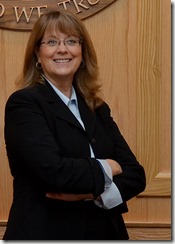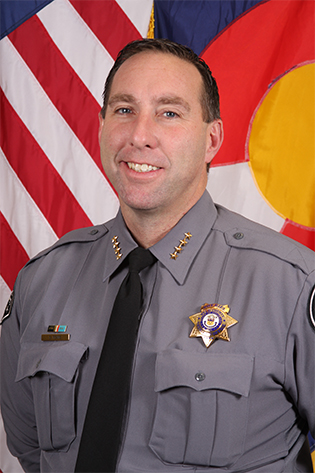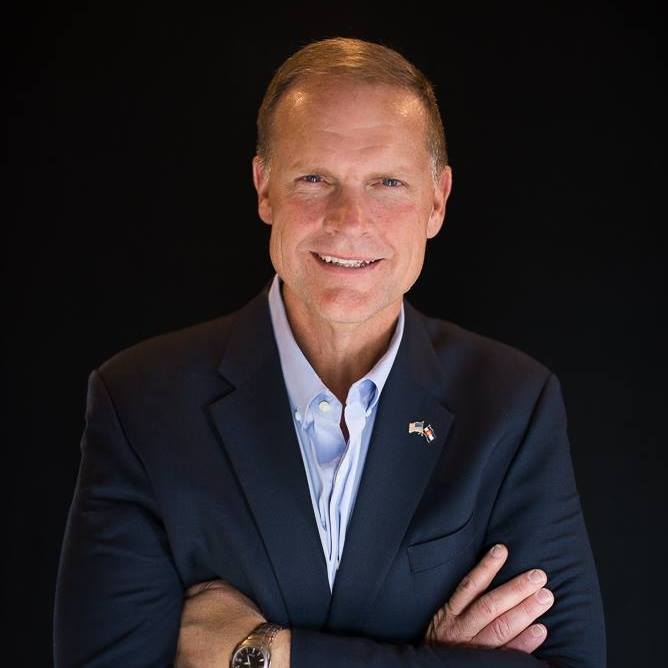GREELEY — Weld County Commissioners today passed a resolution declaring Weld a “Second Amendment Sanctuary” county, with Commissioner Barbara Kirkmeyer saying state lawmakers got the title to the Red Flag bill all wrong.
Senate Bill 19-1177, which proponents say would take guns out of the hands of anyone who is deemed a risk to themselves or others for up to a year, likely drew it’s harshest critics in the five-member Board of Weld County Commissioners and Weld County Sheriff Steve Reams.

“The severity of this bill cannot be overstated,” Kirkmeyer said. “The name of this bill is the Extreme Risk Protection Orders. I think that’s a façade, and I think it’s fraudulent. I think actually, this bill should have been titled: ‘The Extreme Order to Confiscate Your Firearms, Eliminate Due Process, and Violate your Constitutional Rights Bill.”
Although Kirkmeyer’s comments drew laughter from most everyone in the room, the mood was serious at both the board’s work session and its regular meeting, where commissioners passed the resolution unanimously.
Weld became the third and largest county to pass such a resolution, following Fremont and Montezuma counties. Other counties, including Custer, Teller, Douglas, Mesa and many others are considering similar measures. State Rep. Dave Williams, R-El Paso has requested his county also follow suit.
“The bill is so riddled with constitutional problems that it makes it hard to understand how professional lawmakers could have constructed something so terrible,” Reams said, adding the bill, “raises some serious concerns about due process, in that a person can have their guns taken away and their rights violated, all without ever having a chance to appear in an initial court hearing and cross examine accusers and witnesses in person. In legal terms, this is an exparte hearing.”
Weld County Attorney Bruce Barker, who drafted the resolution, made the language clear, commissioners said, that the law is not only a violation of the U.S. Constitution but the Colorado Constitution, siting several statutes and legal precedents in the resolution.

Weld County Second Amendment Sanctuary County Resolution by Sherrie A Peif on Scribd
The resolution reads in part: “The board affirms its support for the Weld county Sheriff in the exercise of his sound discretion to not enforce against any citizen an unconstitutional firearms law,” and “the board will no appropriate funds for capital construction of building space and purchase of storage systems to store weapons seized pursuant to the authority and requirements set forth in HB 19-1177 … and/or for the purpose of enforcing any other law that unconstitutionally infringes up on the fright to the People of Weld count to keep and bear arms.”
Reams said one of the biggest problems with the law is it does not address the actual mental health issues, rather it only allows for guns to be taken away, leaving the person in the same position and without medical help.
Several people spoke at both the work session and the hearing, only one person opposed the resolution.
Eaton resident Aaron Peterson said he was proud of the commissioners and Weld County.
“The red flag rules raise a lot of red flags for me,” Peterson said. “The fact the state believes they can circumvent all due process, that they can seize and hold personal property with no jury of peers, with no proof of guilt, with no evidence whatsoever other than a neighbor’s claim that you’re nuts, is really an alarming precedent.”
Peterson said it goes beyond due process and the Second Amendment, he said it could suppress free speech.
“They could take away my ability to bear arms simply because of what I say, and they don’t like it,” Peterson said. “That it could be used against me is really alarming. Under these rules I could be disarmed for speaking out today. Somebody could decide I’m just too excited about bearing arms, and I’m a danger.”
Bret Abernathy, President of the Weld County Council, said he supported the resolution and pointed out that there is no way to enforce the law entirely because there is no way to know exactly how many firearms someone owns.
“But we’re putting law enforcement into a situation where they have to determine how many they are looking for, what they are looking for, how deep do they have to look for these. They are creating a situation that when they show up they have no idea what they are getting into.”
Reams agreed, adding this is his decision to determine whether or not to enforce the law.
“The person whose guns we are taking away doesn’t know were coming,” Reams said. “It creates a safety issue for any law enforcement officer whose put in the dubious position of trying to go and enact one of these. For my own agency, I’ve already made the commitment that the only person who will interact with this law is me personally.”
Greeley resident Aubrey Avers was the only person to oppose the resolution.
Avers said the Second Amendment is the excuse used every time gun reform is proposed, despite no one’s rights ever truly being violated. She called the bill “common sense gun laws designed for public safety.”
“The truth is we live in a regulated society and our rights have limits when they begin to infringe on someone else’s,” Avers said. “Governing is not an infallible task. Governing by using the slippery slope argument to prevent positive change isn’t acceptable either.”

Commissioner Scott James said he would not waiver from the oath he took when he was sworn into office. He said until the courts rule, he as a responsibility to make an assessment on whether laws are constitutional.
“As I read through the Second-Amendment, the words that glare at me are ‘shall not be infringed.’ Yet time and time again, our state legislature endeavors to infringe a constitutional protected right,” James said. “It is my assessment that House Bill 19-1177 is unconstitutional. I can not find it in my being to put our good sheriff and his deputies in harm’s way, to fund something I believe to be an unconstitutional activity. It’s fiscally irresponsible, and it’s morally not right. If I’m going to err as an elected official, I’m going to err on the side of protecting and upholding rights and not removing them.”


